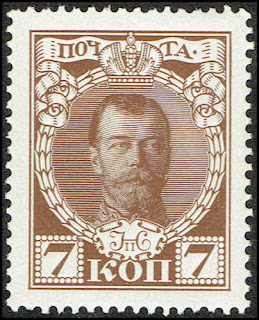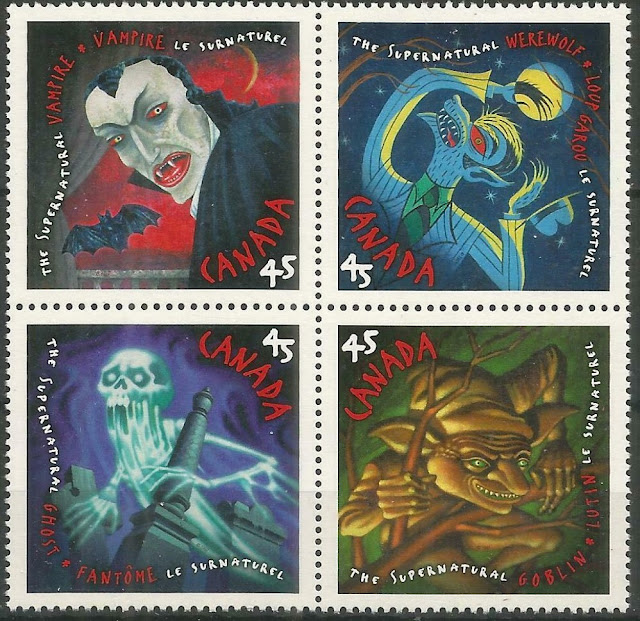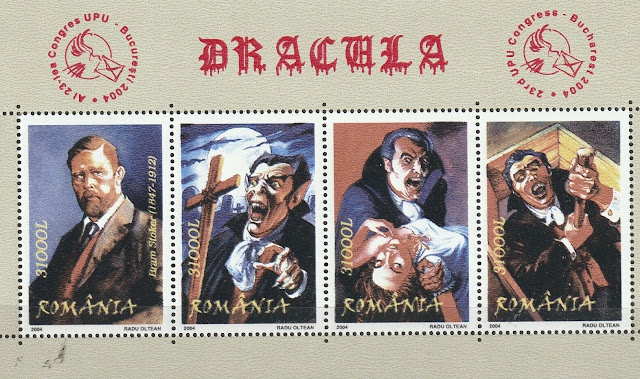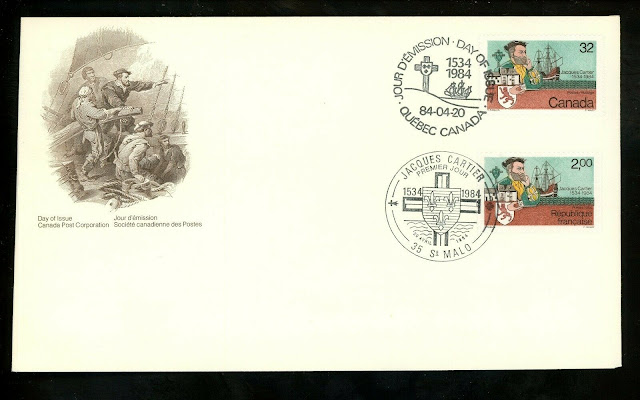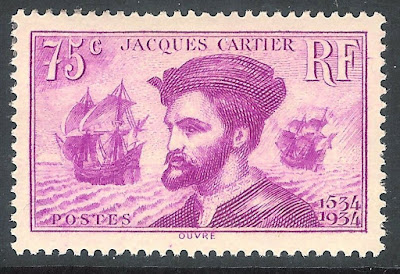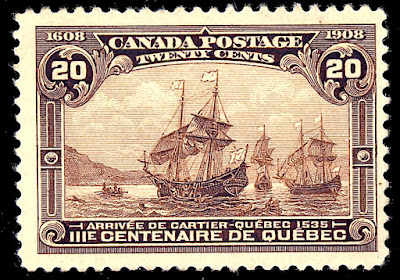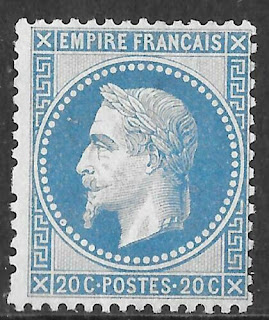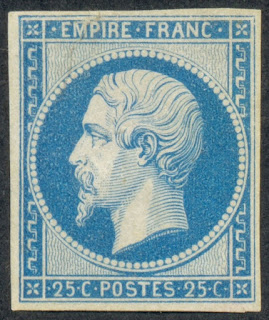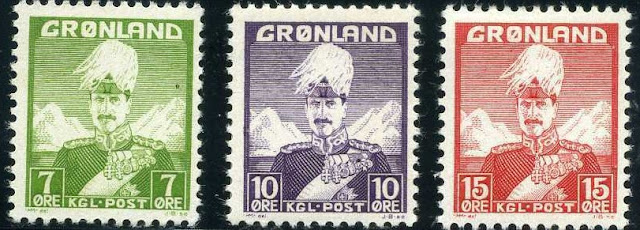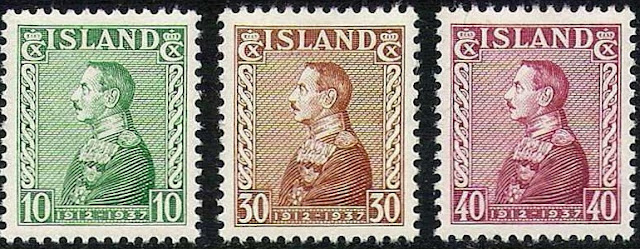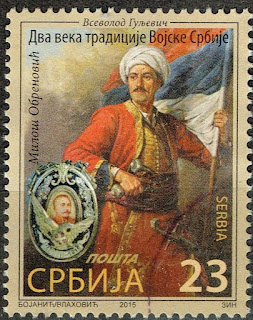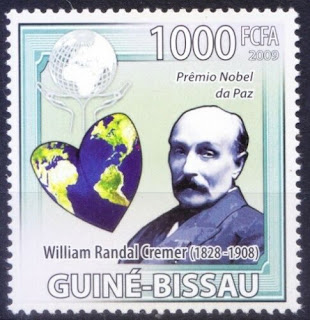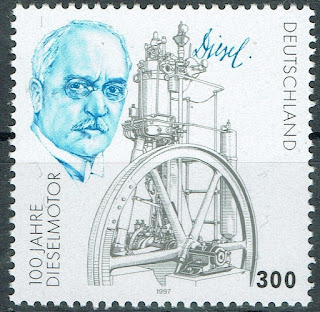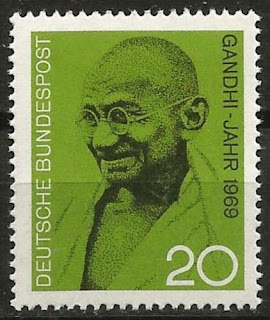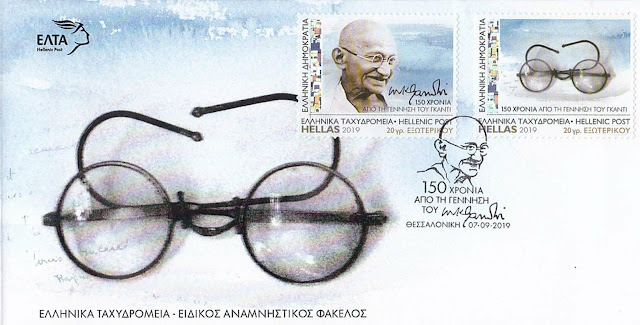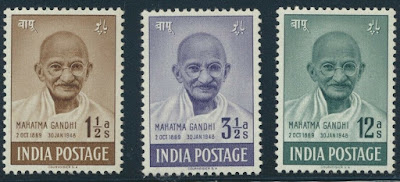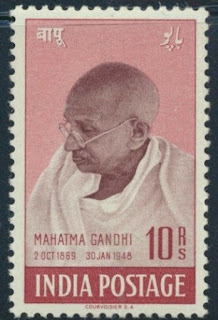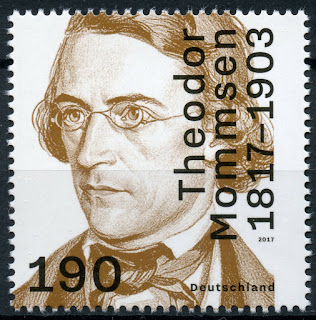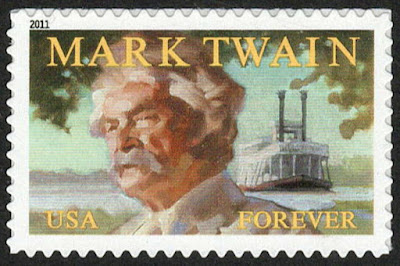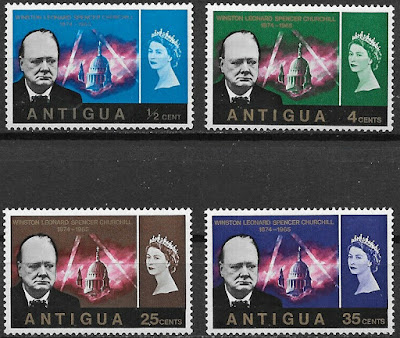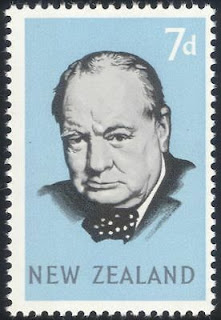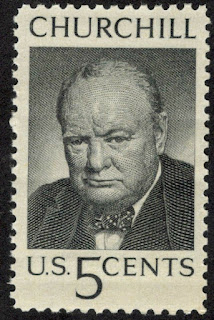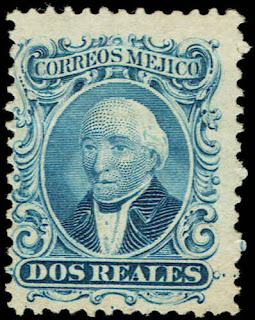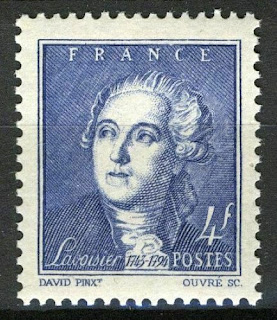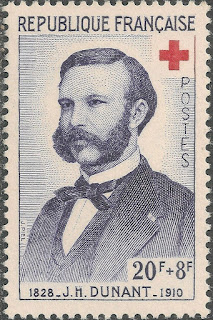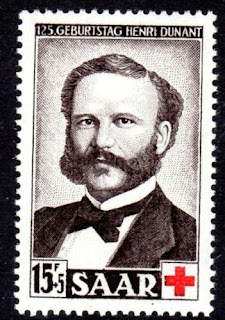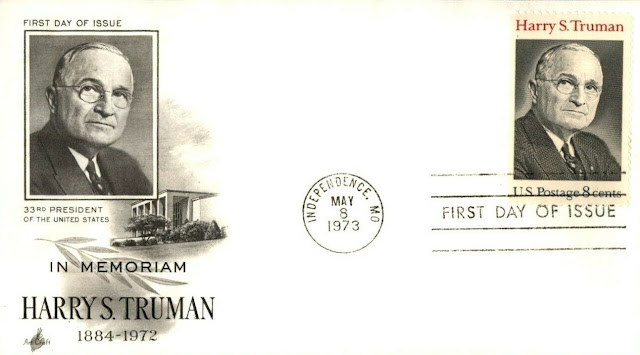Stoker visited the English coastal town of Whitby in 1890, and that visit was said to be part of the inspiration for Dracula. He began writing novels while working as manager for Henry Irving and secretary and director of London's Lyceum Theatre, beginning with The Snake's Pass in 1890 and Dracula in 1897. During this period, Stoker was part of the literary staff of The Daily Telegraph in London, and he wrote other fiction, including the horror novels The Lady of the Shroud (1909) and The Lair of the White Worm (1911). He published his Personal Reminiscences of Henry Irving in 1906, after Irving's death, which proved successful, and managed productions at the Prince of Wales Theatre.
Before writing Dracula, Stoker met Ármin Vámbéry, a Slovak-Jewish writer and traveler (born in Szent-György, Kingdom of Hungary now Svätý Jur, Slovakia),. Dracula likely emerged from Vámbéry's dark stories of the Carpathian mountains. Stoker then spent several years researching Central and East European folklore and mythological stories of vampires.
The 1972 book In Search of Dracula by Radu Florescu and Raymond McNally claimed that the Count in Stoker's novel was based on Vlad III Dracula. At most however, Stoker borrowed only the name and "scraps of miscellaneous information" about Romanian history, according to one expert, Elizabeth Miller; further, there are no comments about Vlad III in the author's working notes.
Dracula is an epistolary novel, written as a collection of realistic but completely fictional diary entries, telegrams, letters, ship's logs, and newspaper clippings, all of which added a level of detailed realism to the story, a skill which Stoker had developed as a newspaper writer. At the time of its publication, Dracula was considered a "straightforward horror novel" based on imaginary creations of supernatural life. "It gave form to a universal fantasy ... and became a part of popular culture."
Stamps from Canada, Ireland and Romania depicting Bram Stoker's Dracula
Wednesday, May 26, 2021
May 26th in stamps Nicholas II becomes the last Tsar of Imperial Russia, Dracula, John Wayne
Tuesday, April 20, 2021
April 20th in stamps Cartier, Napoleon III, Bram Stoker, Christian X of Denmark
Here are some events that happened on April 20th. It could be an event or a person that died or was born on that day
1534 – Jacques Cartier begins his first voyage to what is today the east coast of Canada, Newfoundland and Labrador.
Jacques Cartier (December 31, 1491 – September 1, 1557) was a Breton explorer who claimed what is now Canada for France. Jacques Cartier was the first European to describe and map the Gulf of Saint Lawrence and the shores of the Saint Lawrence River, which he named "The Country of Canadas", after the Iroquois names for the two big settlements he saw at Stadacona (Quebec City) and at Hochelaga (Montreal Island).
Some stamps and a First Day Cover from France and Canada depicting Jacques Cartier
1808 Born: Napoleon III, French politician, 1st President of France (d. 1873)
Napoleon III (born Charles-Louis Napoléon Bonaparte; 20 April 1808 – 9 January 1873), the nephew of Napoleon I, was the first President of France from 1848 to 1852, and the last French monarch from 1852 to 1870. First elected president of the French Second Republic in 1848, he seized power in 1851, when he could not constitutionally be re-elected, and became the Emperor of the French. He founded the Second French Empire and was its only emperor until the defeat of the French army and his capture by Prussia and its allies in the Franco-Prussian War in 1870. He worked to modernize the French economy, rebuilt the center of Paris, expanded the overseas empire, and engaged in the Crimean War and the Second Italian War of Independence.
Napoleon III commissioned the grand reconstruction of Paris, carried out by his prefect of the Seine, Baron Haussmann. He launched similar public works projects in Marseille, Lyon and other French cities. Napoleon III modernized the French banking system, greatly expanded and consolidated the French railway system and made the French merchant marine the second largest in the world. He promoted the building of the Suez Canal and established modern agriculture, which ended famines in France and made France an agricultural exporter. Napoleon III negotiated the 1860 Cobden–Chevalier free trade agreement with Britain and similar agreements with France's other European trading partners. Social reforms included giving French workers the right to strike and the right to organize. The first women students were admitted at the Sorbonne, and women's education greatly expanded as did the list of required subjects in public schools.
In foreign policy, Napoleon III aimed to reassert French influence in Europe and around the world. He was a supporter of popular sovereignty and of nationalism. In Europe, he allied with Britain and defeated Russia in the Crimean War (1853–56). His regime assisted Italian unification by defeating the Austrian Empire in the Franco-Austrian War, and as its deferred reward later annexed Savoy and the County of Nice. At the same time, his forces defended the Papal States against annexation by Italy. Napoleon III doubled the area of the French overseas empire in Asia, the Pacific and Africa, however his army's intervention in Mexico, which aimed to create a Second Mexican Empire under French protection, ended in total failure.
From 1866, Napoleon had to face the mounting power of Prussia as its Chancellor Otto von Bismarck sought German unification under Prussian leadership. In July 1870, Napoleon entered the Franco-Prussian War without allies and with inferior military forces. The French army was rapidly defeated and Napoleon III was captured at the Battle of Sedan. The French Third Republic was proclaimed in Paris and Napoleon went into exile in England, where he died in 1873.
Some stamps of France and France Colonies general issues depicting Emperor Napoleon III
1912 Died: Bram Stoker, Anglo-Irish novelist and critic, created Count Dracula (b. 1847)
Abraham "Bram" Stoker (8 November 1847 – 20 April 1912) was an Irish author, best known today for his 1897 Gothic novel Dracula. During his lifetime, he was better known as the personal assistant of actor Sir Henry Irving, and business manager of the Lyceum Theatre in London, which Irving owned.
Stoker visited the English coastal town of Whitby in 1890, and that visit was said to be part of the inspiration for Dracula. He began writing novels while working as manager for Henry Irving and secretary and director of London's Lyceum Theatre, beginning with The Snake's Pass in 1890 and Dracula in 1897. During this period, Stoker was part of the literary staff of The Daily Telegraph in London, and he wrote other fiction, including the horror novels The Lady of the Shroud (1909) and The Lair of the White Worm (1911). He published his Personal Reminiscences of Henry Irving in 1906, after Irving's death, which proved successful, and managed productions at the Prince of Wales Theatre.
Before writing Dracula, Stoker met Ármin Vámbéry, a Slovak-Jewish writer and traveler (born in Szent-György, Kingdom of Hungary now Svätý Jur, Slovakia),. Dracula likely emerged from Vámbéry's dark stories of the Carpathian mountains. Stoker then spent several years researching Central and East European folklore and mythological stories of vampires.
The 1972 book In Search of Dracula by Radu Florescu and Raymond McNally claimed that the Count in Stoker's novel was based on Vlad III Dracula. At most however, Stoker borrowed only the name and "scraps of miscellaneous information" about Romanian history, according to one expert, Elizabeth Miller; further, there are no comments about Vlad III in the author's working notes.
Dracula is an epistolary novel, written as a collection of realistic but completely fictional diary entries, telegrams, letters, ship's logs, and newspaper clippings, all of which added a level of detailed realism to the story, a skill which Stoker had developed as a newspaper writer. At the time of its publication, Dracula was considered a "straightforward horror novel" based on imaginary creations of supernatural life. "It gave form to a universal fantasy ... and became a part of popular culture."
Stamps from Canada, Ireland and Romania depicting Bram Stoker's Dracula
1947 Died: Christian X of Denmark (b. 1870)
Christian X (Christian Carl Frederik Albert Alexander Vilhelm; 26 September 1870 – 20 April 1947) was King of Denmark from 1912 to 1947, and the last of the 30 Kings of Iceland (where the name was officially Kristján X) between 1918 and 1944. He was a member of the House of Glücksburg and the first monarch since King Frederick VII that was born into the Danish royal family; both his father and his grandfather were born as princes of a ducal family from Schleswig. Among his siblings was King Haakon VII of Norway.
His character has been described as authoritarian and he strongly stressed the importance of royal dignity and power. His reluctance to fully embrace democracy resulted in the Easter Crisis of 1920, in which he dismissed the democratically elected Social Liberal cabinet with which he disagreed, and installed one of his own choosing. This was in accordance with the letter of the constitution, but the principle of parliamentarianism had been considered a constitutional custom since 1901. Faced with mass demonstrations, a general strike organized by the Social Democrats and the risk of the monarchy being overthrown he was forced to accept that a monarch could not keep a government in office against the will of parliament, as well as his reduced role as a symbolic head of state.
During the German occupation of Denmark, Christian become a popular symbol of resistance, particularly because of the symbolic value of the fact that he rode every day through the streets of Copenhagen unaccompanied by guards. With a reign spanning two world wars, and his role as a rallying symbol for Danish national sentiment during the German occupation, he became one of the most popular Danish monarchs of modern times. King Christian X was known to parade through town on his horse, Jubilee.
Stamps from Iceland, Greenland and Denmark depicting Christian X
Thursday, March 18, 2021
March 18th in stamp Miloš Obrenović, Rudolf Diesel, Mohandas Gandhi is sentenced to six years in prison, Randal Cremer
Here are some events that happened on March 18th. It could be an event or a person that died or was born on that day
1780 Born: Miloš Obrenović, Serbian prince (d. 1860)
Prince Miloš Obrenović I of Serbia (18 March 1780 or 1783 – 26 September 1860) born Miloš Teodorović was Prince of Serbia from 1815 to 1839, and again from 1858 to 1860. He participated in the First Serbian uprising, led Serbs in the Second Serbian uprising, and founded the House of Obrenović. Under his rule, Serbia became an autonomous principality within the Ottoman Empire. Prince Miloš ruled autocratically, consistently refusing to share power, which generated strong domestic opposition. During his rule, Miloš I bought a number of estates and ships from Ottoman Turks and also became a prominent trader. He was the richest man in Serbia and one of the richest in the Balkans, with estates in Vienna, Serbia and Wallachia.
Serbian stamps depicting Miloš Obrenović
1828 Born: Randal Cremer, English activist and politician, Nobel Prize laureate (d. 1908)
Stamp issued by Guinea Bissau depicting Randal Cremer
1858 Born: Rudolf Diesel, German engineer, invented the Diesel engine (d. 1913)
Rudolf Christian Karl Diesel (18 March 1858 – 29 September 1913) was a German inventor and mechanical engineer, famous for the invention of the Diesel engine, and for his suspicious death at sea.
In early 1890, Diesel moved to Berlin with his wife and children, Rudolf Jr, Heddy, and Eugen, to assume management of Linde's corporate research and development department and to join several other corporate boards there. As he was not allowed to use the patents he developed while an employee of Linde's for his own purposes, he expanded beyond the field of refrigeration. He first worked with steam, his research into thermal efficiency and fuel efficiency leading him to build a steam engine using ammonia vapour. During tests, however, the engine exploded and almost killed him. His research into high compression cylinder pressures tested the strength of iron and steel cylinder heads. One exploded during a run in. He spent many months in a hospital, followed by health and eyesight problems.
Ever since attending lectures of Carl von Linde, Diesel intended designing an internal combustion engine that could approach the maximum theoretical thermal efficiency of the Carnot cycle. He worked on this idea for several years, and in 1892, he considered his theory to be completed. The same year, Diesel was given the German patent DRP 67207. In 1893, he published a treatise entitled Theory and Construction of a Rational Heat-engine to Replace the Steam Engine and The Combustion Engines Known Today, that he had been working on since early 1892. This treatise formed the basis for his work on and invention of the Diesel engine. By summer 1893, Diesel had realised that his initial theory was erroneous, which led him to file another patent application for the corrected theory in 1893.
Diesel understood thermodynamics and the theoretical and practical constraints on fuel efficiency. He knew that as much as 90% of the energy available in the fuel is wasted in a steam engine. His work in engine design was driven by the goal of much higher efficiency ratios. In his engine, fuel was injected at the end of the compression stroke and was ignited by the high temperature resulting from the compression. From 1893 to 1897, Heinrich von Buz, director of MAN SE in Augsburg, gave Rudolf Diesel the opportunity to test and develop his ideas.
The first successful Diesel engine ran in 1897 and is now on display at the German Technical Museum in Munich.
Rudolf Diesel obtained patents for his design in Germany and other countries, including the United States.
He was inducted into the Automotive Hall of Fame in 1978.
Stamps from Germany and Saarland depicting Diesel
1922 – In India, Mohandas Gandhi is sentenced to six years in prison for civil disobedience, of which he serves only two.
Mohandas Karamchand Gandhi (2 October 1869 – 30 January 1948) was an Indian lawyer, anti-colonial nationalist, and political ethicist, who employed nonviolent resistance to lead the successful campaign for India's independence from British Rule, and in turn inspire movements for civil rights and freedom across the world. The honorific Mahātmā (Sanskrit: "great-souled", "venerable"), first applied to him in 1914 in South Africa, is now used throughout the world.
Born and raised in a Hindu family in coastal Gujarat, western India, Gandhi was trained in law at the Inner Temple, London, and called to the bar at age 22 in June 1891. After two uncertain years in India, where he was unable to start a successful law practice, he moved to South Africa in 1893 to represent an Indian merchant in a lawsuit. He went on to stay for 21 years. It was in South Africa that Gandhi raised a family, and first employed nonviolent resistance in a campaign for civil rights. In 1915, aged 45, he returned to India. He set about organizing peasants, farmers, and urban laborers to protest against excessive land-tax and discrimination. Assuming leadership of the Indian National Congress in 1921, Gandhi led nationwide campaigns for easing poverty, expanding women's rights, building religious and ethnic amity, ending untouchability, and above all for achieving Swaraj or self-rule.
The same year Gandhi adopted the Indian loincloth, or short dhoti and, in the winter, a shawl, both woven with yarn hand-spun on a traditional Indian spinning wheel, or charkha, as a mark of identification with India's rural poor. Thereafter, he lived modestly in a self-sufficient residential community, ate simple vegetarian food, and undertook long fasts as a means of self-purification and political protest. Bringing anti-colonial nationalism to the common Indians, Gandhi led them in challenging the British-imposed salt tax with the 400 km (250 mi) Dandi Salt March in 1930, and later in calling for the British to Quit India in 1942. He was imprisoned for many years, upon many occasions, in both South Africa and India.
Gandhi's vision of an independent India based on religious pluralism was challenged in the early 1940s by a new Muslim nationalism which was demanding a separate Muslim homeland carved out of India. In August 1947, Britain granted independence, but the British Indian Empire was partitioned into two dominions, a Hindu-majority India and Muslim-majority Pakistan. As many displaced Hindus, Muslims, and Sikhs made their way to their new lands, religious violence broke out, especially in the Punjab and Bengal. Eschewing the official celebration of independence in Delhi, Gandhi visited the affected areas, attempting to provide solace. In the months following, he undertook several fasts unto death to stop religious violence. The last of these, undertaken on 12 January 1948 when he was 78, also had the indirect goal of pressuring India to pay out some cash assets owed to Pakistan. Some Indians thought Gandhi was too accommodating. Among them was Nathuram Godse, a Hindu nationalist, who assassinated Gandhi on 30 January 1948 by firing three bullets into his chest
Stamps from various countries depicting Gandhi
Monday, November 30, 2020
November 30th in stamps Mark Twain, Winston Churchill, Oscar Wilde, Theodor Mommsen
Here are some events that happened on November 30th. It could be an event or a person that died or was born on that day
1817 Born: Theodor Mommsen, German archaeologist, journalist, and politician, Nobel Prize laureate (d. 1903)
Christian Matthias Theodor Mommsen (30 November 1817 – 1 November 1903) was a German classical scholar, historian, jurist, journalist, politician and archaeologist. He is widely regarded as one of the greatest classicists of the 19th century. His work regarding Roman history is still of fundamental importance for contemporary research. He received the Nobel Prize in Literature in 1902 for being "the greatest living master of the art of historical writing, with special reference to his monumental work, A History of Rome", after having been nominated by 18 members of the Prussian Academy of Sciences. He was also a prominent German politician, as a member of the Prussian and German parliaments. His works on Roman law and on the law of obligations had a significant impact on the German civil code.
German, Berlin and East German stamps depicting Theodor Mommsen
1835 Born: Mark Twain, American novelist, humorist, and critic (d. 1910)
Samuel Langhorne Clemens (November 30, 1835 – April 21, 1910), known by his pen name Mark Twain, was an American writer, humorist, entrepreneur, publisher, and lecturer. He was lauded as the "greatest humorist the United States has produced," and William Faulkner called him "the father of American literature". His novels include The Adventures of Tom Sawyer (1876) and its sequel, the Adventures of Huckleberry Finn (1884), the latter often called "The Great American Novel".
Twain was raised in Hannibal, Missouri, which later provided the setting for Tom Sawyer and Huckleberry Finn. He served an apprenticeship with a printer and then worked as a typesetter, contributing articles to the newspaper of his older brother Orion Clemens. He later became a riverboat pilot on the Mississippi River before heading west to join Orion in Nevada. He referred humorously to his lack of success at mining, turning to journalism for the Virginia City Territorial Enterprise. His humorous story, "The Celebrated Jumping Frog of Calaveras County", was published in 1865, based on a story that he heard at Angels Hotel in Angels Camp, California, where he had spent some time as a miner. The short story brought international attention and was even translated into French. His wit and satire, in prose and in speech, earned praise from critics and peers, and he was a friend to presidents, artists, industrialists, and European royalty.
Twain earned a great deal of money from his writings and lectures, but he invested in ventures that lost most of it—such as the Paige Compositor, a mechanical typesetter that failed because of its complexity and imprecision. He filed for bankruptcy in the wake of these financial setbacks, but in time overcame his financial troubles with the help of Henry Huttleston Rogers. He eventually paid all his creditors in full, even though his bankruptcy relieved him of having to do so. Twain was born shortly after an appearance of Halley's Comet, and he predicted that he would "go out with it" as well; he died the day after the comet made its closest approach to the Earth.
US stamps and sheet depicting Mark Twain
1874 Born: Winston Churchill, English colonel, journalist, and politician, Prime Minister of the United Kingdom, Nobel Prize laureate (d. 1965)
Sir Winston Leonard Spencer Churchill (30 November 1874 – 24 January 1965) was a British statesman, army officer, and writer. He was Prime Minister of the United Kingdom from 1940 to 1945, when he led the country to victory in the Second World War, and again from 1951 to 1955. Apart from two years between 1922 and 1924, Churchill was a Member of Parliament (MP) from 1900 to 1964 and represented a total of five constituencies. Ideologically an economic liberal and imperialist, he was for most of his career a member of the Conservative Party, as leader from 1940 to 1955. He was a member of the Liberal Party from 1904 to 1924.
Of mixed English and American parentage, Churchill was born in Oxfordshire to a wealthy, aristocratic family. He joined the British Army in 1895 and saw action in British India, the Anglo-Sudan War, and the Second Boer War, gaining fame as a war correspondent and writing books about his campaigns. Elected a Conservative MP in 1900, he defected to the Liberals in 1904. In H. H. Asquith's Liberal government, Churchill served as President of the Board of Trade and Home Secretary, championing prison reform and workers' social security. As First Lord of the Admiralty during the First World War, he oversaw the Gallipoli Campaign but, after it proved a disaster, he was demoted to Chancellor of the Duchy of Lancaster. He resigned in November 1915 and joined the Royal Scots Fusiliers on the Western Front for six months. In 1917, he returned to government under David Lloyd George and served successively as Minister of Munitions, Secretary of State for War, Secretary of State for Air, and Secretary of State for the Colonies, overseeing the Anglo-Irish Treaty and British foreign policy in the Middle East. After two years out of Parliament, he served as Chancellor of the Exchequer in Stanley Baldwin's Conservative government, returning the pound sterling in 1925 to the gold standard at its pre-war parity, a move widely seen as creating deflationary pressure and depressing the UK economy.
Out of office during the 1930s, Churchill took the lead in calling for British rearmament to counter the growing threat of militarism in Nazi Germany. At the outbreak of the Second World War he was re-appointed First Lord of the Admiralty. In May 1940, he became Prime Minister, replacing Neville Chamberlain. Churchill oversaw British involvement in the Allied war effort against the Axis powers, resulting in victory in 1945. After the Conservatives' defeat in the 1945 general election, he became Leader of the Opposition. Amid the developing Cold War with the Soviet Union, he publicly warned of an "iron curtain" of Soviet influence in Europe and promoted European unity. Re-elected Prime Minister in 1951, his second term was preoccupied with foreign affairs, especially Anglo-American relations and, despite ongoing decolonisation, preservation of the British Empire. Domestically, his government emphasised house-building and developed a nuclear weapon. In declining health, Churchill resigned as Prime Minister in 1955, although he remained an MP until 1964. Upon his death in 1965, he was given a state funeral.
Widely considered one of the 20th century's most significant figures, Churchill remains popular in the UK and Western world, where he is seen as a victorious wartime leader who played an important role in defending Europe's liberal democracy against the spread of fascism. Also praised as a social reformer and writer, among his many awards was the Nobel Prize in Literature. Conversely, he has been criticised for some wartime events, notably the 1945 bombing of Dresden, and for his imperialist views and comments on race.
Stamps from various countries depicting Churchill
1900 Died: Oscar Wilde, Irish playwright, novelist, and poet (b. 1854)
Oscar Fingal O'Flahertie Wills Wilde (16 October 1854 – 30 November 1900) was an Irish poet and playwright. After writing in different forms throughout the 1880s, the early 1890s saw him become one of the most popular playwrights in London. He is best remembered for his epigrams and plays, his novel The Picture of Dorian Gray, and the circumstances of his criminal conviction for gross indecency for consensual homosexual acts, imprisonment, and early death at age 46.
Wilde's parents were Anglo-Irish intellectuals in Dublin. A young Wilde learned to speak fluent French and German. At university, Wilde read Greats; he demonstrated himself to be an exceptional classicist, first at Trinity College Dublin, then at Oxford. He became associated with the emerging philosophy of aestheticism, led by two of his tutors, Walter Pater and John Ruskin. After university, Wilde moved to London into fashionable cultural and social circles.
As a spokesman for aestheticism, he tried his hand at various literary activities: he published a book of poems, lectured in the United States and Canada on the new "English Renaissance in Art" and interior decoration, and then returned to London where he worked prolifically as a journalist. Known for his biting wit, flamboyant dress and glittering conversational skill, Wilde became one of the best-known personalities of his day. At the turn of the 1890s, he refined his ideas about the supremacy of art in a series of dialogues and essays, and incorporated themes of decadence, duplicity, and beauty into what would be his only novel, The Picture of Dorian Gray (1890). The opportunity to construct aesthetic details precisely, and combine them with larger social themes, drew Wilde to write drama. He wrote Salome (1891) in French while in Paris but it was refused a licence for England due to an absolute prohibition on the portrayal of Biblical subjects on the English stage. Unperturbed, Wilde produced four society comedies in the early 1890s, which made him one of the most successful playwrights of late-Victorian London.
At the height of his fame and success, while The Importance of Being Earnest (1895) was still being performed in London, Wilde prosecuted the Marquess of Queensberry for criminal libel. The Marquess was the father of Wilde's lover, Lord Alfred Douglas. The libel trial unearthed evidence that caused Wilde to drop his charges and led to his own arrest and trial for gross indecency with men. After two more trials he was convicted and sentenced to two years' hard labour, the maximum penalty, and was jailed from 1895 to 1897. During his last year in prison, he wrote De Profundis (published posthumously in 1905), a long letter which discusses his spiritual journey through his trials, forming a dark counterpoint to his earlier philosophy of pleasure. On his release, he left immediately for France, never to return to Ireland or Britain. There he wrote his last work, The Ballad of Reading Gaol (1898), a long poem commemorating the harsh rhythms of prison life.
Irish stamps depicting Oscar Wilde
Friday, May 08, 2020
May 8th in stamps Hidalgo, Antoine Lavoisier, Henry Dunant, Truman, Gandhi
1753 Born: Miguel Hidalgo y Costilla, Mexican priest and rebel leader (d. 1811)
Don Miguel Gregorio Antonio Francisco Ignacio Hidalgo-Costilla y Gallaga Mandarte Villaseñor (8 May 1753 – 30 July 1811), more commonly known as Don Miguel Hidalgo y Costilla or Miguel Hidalgo, was a New Spanish Roman Catholic priest, a leader of the Mexican War of Independence, and recognized as the Father of the Nation.
He was a professor at the Colegio de San Nicolás Obispo in Valladolid and was ousted in 1792. He served in a church in Colima and then in Dolores. After his arrival, he was shocked by the rich soil he had found. He tried to help the poor by showing them how to grow olives and grapes, but in New Spain (modern Mexico) growing these crops was discouraged or prohibited by the authorities so as to avoid competition with imports from Spain. In 1810 he gave the famous speech, "Cry of Dolores", calling upon the people to protect the interest of their King Fernando VII (held captive by Napoleon) by revolting against the European-born Spaniards who had overthrown the Spanish Viceroy.
He marched across Mexico and gathered an army of nearly 90,000 poor farmers and Mexican civilians who attacked and killed both Spanish Peninsulares and Criollo elites, even though Hidalgo's troops lacked training and were poorly armed. These troops ran into an army of 6,000 well-trained and armed Spanish troops; most of Hidalgo's troops fled or were killed at the Battle of Calderón Bridge. After the battle, Hidalgo and his remaining troops fled north, but Hidalgo was betrayed, captured and executed.
Mexican stamps depicting Miguel Hidalgo y Costilla
1794 – Branded a traitor during the Reign of Terror, French chemist Antoine Lavoisier, who was also a tax collector with the Ferme générale, is tried, convicted and guillotined in one day in Paris.
Antoine-Laurent de Lavoisier (26 August 1743 – 8 May 1794), also Antoine Lavoisier after the French Revolution, was a French nobleman and chemist who was central to the 18th-century chemical revolution and who had a large influence on both the history of chemistry and the history of biology. He is widely considered in popular literature as the "father of modern chemistry".
It is generally accepted that Lavoisier's great accomplishments in chemistry stem largely from his changing the science from a qualitative to a quantitative one. Lavoisier is most noted for his discovery of the role oxygen plays in combustion. He recognized and named oxygen (1778) and hydrogen (1783), and opposed the phlogiston theory. Lavoisier helped construct the metric system, wrote the first extensive list of elements, and helped to reform chemical nomenclature. He predicted the existence of silicon (1787) and was also the first to establish that sulfur was an element (1777) rather than a compound. He discovered that, although matter may change its form or shape, its mass always remains the same.
Lavoisier was a powerful member of a number of aristocratic councils, and an administrator of the Ferme générale. The Ferme générale was one of the most hated components of the Ancien Régime because of the profits it took at the expense of the state, the secrecy of the terms of its contracts, and the violence of its armed agents. All of these political and economic activities enabled him to fund his scientific research. At the height of the French Revolution, he was charged with tax fraud and selling adulterated tobacco, and was guillotined.
French stamp depicting Antoine Lavoisier
1828 Born: Henry Dunant, Swiss businessman and activist, co-founded the Red Cross, Nobel Prize laureate (d. 1910)
Henry Dunant (born Jean-Henri Dunant; 8 May 1828 – 30 October 1910), also known as Henri Dunant, was a Swiss humanitarian, businessman and social activist. He was the visionary, promoter and co-founder of the Red Cross.
During a business trip in 1859, Dunant was witness to the aftermath of the Battle of Solferino in modern-day Italy. He recorded his memories and experiences in the book A Memory of Solferino which inspired the creation of the International Committee of the Red Cross (ICRC) in 1863. The 1864 Geneva Convention was based on Dunant's idea for an independent organisation to care for wounded soldiers.
Dunant was the founder of the Swiss branch of the Young Men's Christian Association YMCA.
In 1901 he received the first Nobel Peace Prize together with Frédéric Passy, making Dunant the first Swiss Nobel laureate.
Stamps from various countries issued to commemorate Dunant and the Red Cross
1884 Born: Harry S. Truman, American colonel and politician, 33rd President of the United States (d. 1972)
Harry S. Truman (May 8, 1884 – December 26, 1972) was the 33rd president of the United States from 1945 to 1953, succeeding upon the death of Franklin D. Roosevelt after serving as vice president. He implemented the Marshall Plan to rebuild the economy of Western Europe, and established the Truman Doctrine and NATO.
Truman grew up in Independence, Missouri, and during World War I was sent to France as a captain in the Field Artillery. Returning home, he opened a haberdashery in Kansas City, Missouri and was later elected as a Jackson County official in 1922. Truman was elected to the United States Senate from Missouri in 1934 and gained national prominence as chairman of the Truman Committee aimed at reducing waste and inefficiency in wartime contracts. Soon after succeeding to the presidency he authorized the first and only use of nuclear weapons in war. Truman's administration engaged in an internationalist foreign policy and renounced isolationism. He rallied his New Deal coalition during the 1948 presidential election and won a surprise victory that secured his own presidential term.
Truman oversaw the Berlin Airlift of 1948. When North Korea invaded South Korea in 1950, he gained United Nations approval to intervene in what became known as the Korean War. On domestic issues, bills endorsed by Truman faced opposition from a conservative Congress, but his administration successfully guided the U.S. economy through the post-war economic challenges. In 1948 he submitted the first comprehensive civil rights legislation and issued Executive Orders to start racial integration in the military and federal agencies.
Corruption in the Truman administration became a central campaign issue in the 1952 presidential election. After Republican Dwight D. Eisenhower's electoral victory against Democrat Adlai Stevenson II, Truman went into a financially-difficult retirement, marked by the founding of his presidential library and the publication of his memoirs. When he left office, Truman's presidency was criticized, but scholars rehabilitated his image in the 1960s and he is highly ranked by scholars.
US stamps depicting Truman
1933 – Mohandas Gandhi begins a 21-day fast of self-purification and launched a one-year campaign to help the Harijan movement.
Mohandas Karamchand Gandhi (2 October 1869 – 30 January 1948) was an Indian lawyer, anti-colonial nationalist, and political ethicist, who employed nonviolent resistance to lead the successful campaign for India's independence from British Rule, and in turn inspire movements for civil rights and freedom across the world. The honorific Mahātmā (Sanskrit: "great-souled", "venerable"), first applied to him in 1914 in South Africa, is now used throughout the world.
Born and raised in a Hindu family in coastal Gujarat, western India, Gandhi was trained in law at the Inner Temple, London, and called to the bar at age 22 in June 1891. After two uncertain years in India, where he was unable to start a successful law practice, he moved to South Africa in 1893 to represent an Indian merchant in a lawsuit. He went on to stay for 21 years. It was in South Africa that Gandhi raised a family, and first employed nonviolent resistance in a campaign for civil rights. In 1915, aged 45, he returned to India. He set about organizing peasants, farmers, and urban laborers to protest against excessive land-tax and discrimination. Assuming leadership of the Indian National Congress in 1921, Gandhi led nationwide campaigns for easing poverty, expanding women's rights, building religious and ethnic amity, ending untouchability, and above all for achieving Swaraj or self-rule.
The same year Gandhi adopted the Indian loincloth, or short dhoti and, in the winter, a shawl, both woven with yarn hand-spun on a traditional Indian spinning wheel, or charkha, as a mark of identification with India's rural poor. Thereafter, he lived modestly in a self-sufficient residential community, ate simple vegetarian food, and undertook long fasts as a means of self-purification and political protest. Bringing anti-colonial nationalism to the common Indians, Gandhi led them in challenging the British-imposed salt tax with the 400 km (250 mi) Dandi Salt March in 1930, and later in calling for the British to Quit India in 1942. He was imprisoned for many years, upon many occasions, in both South Africa and India.
Gandhi's vision of an independent India based on religious pluralism was challenged in the early 1940s by a new Muslim nationalism which was demanding a separate Muslim homeland carved out of India. In August 1947, Britain granted independence, but the British Indian Empire was partitioned into two dominions, a Hindu-majority India and Muslim-majority Pakistan. As many displaced Hindus, Muslims, and Sikhs made their way to their new lands, religious violence broke out, especially in the Punjab and Bengal. Eschewing the official celebration of independence in Delhi, Gandhi visited the affected areas, attempting to provide solace. In the months following, he undertook several fasts unto death to stop religious violence. The last of these, undertaken on 12 January 1948 when he was 78, also had the indirect goal of pressuring India to pay out some cash assets owed to Pakistan. Some Indians thought Gandhi was too accommodating. Among them was Nathuram Godse, a Hindu nationalist, who assassinated Gandhi on 30 January 1948 by firing three bullets into his chest
Stamps from various countries depicting Gandhi

